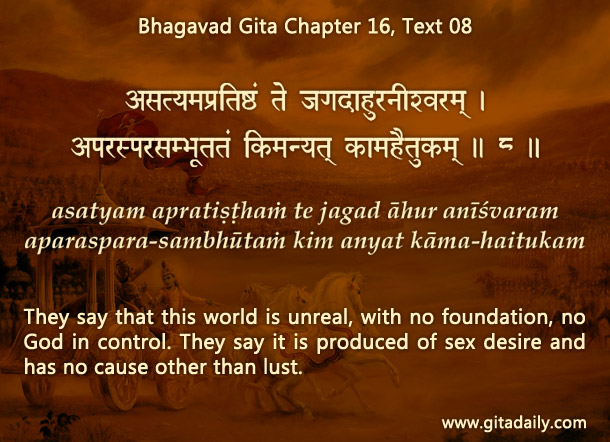Some people argue, “Everything is relative; nothing should be generalized.”
But this argument begs the question: “Nothing should be generalized – should this statement be generalized?” If yes, then the statement is false because there is something, not nothing, that should be generalized. If no, then “nothing should be generalized” doesn’t apply to all statements, implying that some statements may be generalized. Thus, if the statement is generalized, it ends up relativized; and if it is relativized, it ends up generalized. Either way, we end up with the opposite of the starting assertion.
Such logical self-implosion underscores the self-contradictory nature of “nothing should be generalized”. While claiming to provide freedom from absolutist ideologies, it ends up imposing its own version of absolutism: the absolutism of relativism. Pertinently, the Bhagavad-gita states that the absolutism of relativism (“There is no truth”) characterizes the atheistic (16.08), and that those embracing such notions destroy their essence (16.09).
Surely, we can do better than champion self-contradictions. We just need to begin with foundational questions: What is the truth that enables us to examine the truthfulness of anything? If, as atheism would have us believe, we are ultimately nothing but subatomic particles wandering aimlessly and endlessly in the vast emptiness of space, why do we even have the urge to seek the truth? What is the foundational truth that makes us seek truth?
For such intellectually intrepid questioners, Gita wisdom stands ready to show the way to answers. Answers that pass and surpass the test of reason; answers that introduce the questioner to the questioner; answers that link the seeker of meaning with the source and sustainer of all meaning, filling our life with the ultimate meaning. When we are enriched with such answers, existence’s deepest truths stand vindicated in the court of our consciousness.
To know more about this verse, please click on the image
Explanation of article:
Podcast:
Audio Player
Download by “right-click and save”


Superb!
nice. keep it up